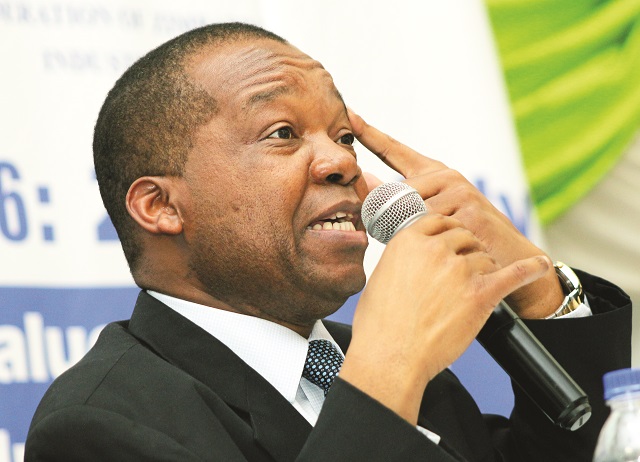RBZ moves to end fuel shortages

Africa Moyo, Harare Bureau
Intermittent fuel shortages experienced in some parts of the country in the past week are expected to disappear after the Reserve Bank of Zimbabwe (RBZ) increased foreign currency allocations for fuel to about $85 million per month starting mid this month.
The increment in foreign currency allocations for fuel, which is about 50 percent compared to earlier months, has been necessitated by challenges experienced by motorists and industrialists in accessing fuel in the past few weeks.
Further, a jump in international prices of oil has meant that more money is now required to purchase fuel.
RBZ governor Dr John Mangudya said on Thursday that they had increased foreign currency allocations for fuel to ensure the commodity is readily available.
“We have increased (monthly allocations for fuel per month) to between $80 and $85 million (from) mid-May 2018,” said Dr Mangudya.
The move by the RBZ comes at a time when Government is pressing ahead with efforts to guarantee uninterrupted supplies of petrol and diesel in the country.
Confederation of Zimbabwe Industries (CZI) president Mr Sifelani Jabangwe conceded this week that fuel consumption had increased in the country, warranting an increase in foreign currency allocations for imports.
“There has been an increase in the consumption of fuel. We now need to increase our budget on fuel but it’s going to put pressure on the demand for foreign currency.
“Fuel demands more foreign currency than any other commodity and that is my biggest worry. We will require an increase in exports to overcome that (foreign currency shortages),” said Mr Jabangwe.
The country now has a huge vehicle population of up to 1,8 million while new factories have been opened, existing ones have ramped up production causing a surge in demand for fuel.
Fuel and electricity are high priorities in terms of foreign currency allocations in the country given their centrality to Government’s industrialisation agenda.
The RBZ has previously indicated that it allocates about $20 million to Zesa so that it imports power from South Africa’s Eskom and Mozambique’s Hidroelectrica de Cahora Bassa (HCB).
Zimbabwe imports about 300MW from Eskom and HCB to augment local generation.
Fuel prices have been trekking upwards in recent weeks to $1,41c in response to rising international prices, which rose to about $80 per barrel last week due to geopolitical tensions in the Middle East, and attempts by Oil Producing and Exporting Countries (Opec) to reduce supply and force a price increase.
However, oil prices had retreated to $67,48 per barrel by yesterday afternoon.
Mr Patrick Pouyanne, CEO of France-based oil firm Total, last week hinted that international oil prices might hit $100 by year-end.
Government has been working to ensure fuel prices are generally low to avoid unnecessary price increases for basic commodities.
On January 22, Government cut excise duty on fuel products so as to reduce production costs.
Duty on petrol was reduced to $0,38 per litre from $0,45.
Industry, Commerce and Enterprise Development Minister Dr Mike Bimha told our Harare Bureau that while fuel prices have marginally increased, they do not warrant a price increase for products.
He implored companies to continuously explore opportunities of reducing production costs for them to remain competitive.
Mr Jabangwe also said the marginal rise in fuel prices did not merit an upward review of prices of goods at the moment.









Comments